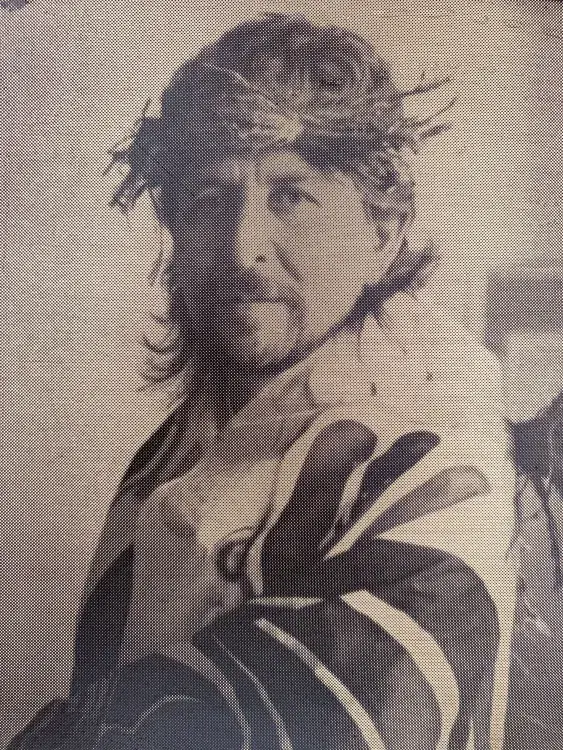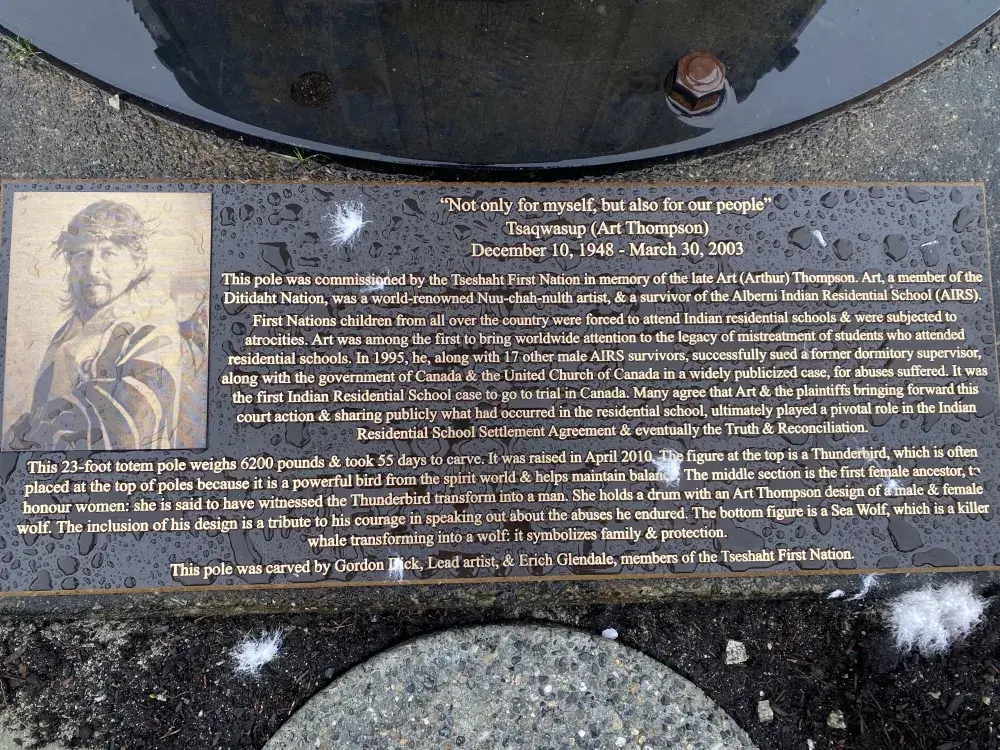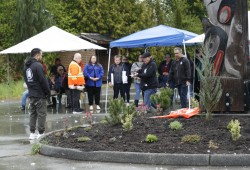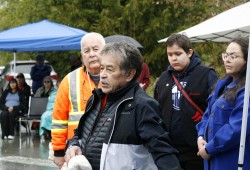Unfinished business was attended to today at the former site of the Alberni Indian Residential School.
For the last 14 years a totem pole has stood at the site, by the entrance to the institution that formerly ran on Tseshaht territory for most of a century. Today a plaque was unveiled to remind people that the pole was erected in honour of Tsaqwasup, Art Thompson, a Ditidaht artist who was among the first former students of the residential school to publicly open up about abuses suffered at AIRS.
“Our brother, our father, had a hard time in this school. He didn’t have very good memories. He used to get beaten a lot here,” said Art’s brother Jack Thompson at the event, thanking the Tseshaht First Nation for the totem pole and plaque. “I really respect what you’ve done for our people.”
Carved in 55 days by Tseshaht artist Gord Dick with Erich Glendale and Alex Spence, the 23-foot totem pole was raised early in the morning of April 29, 2010. Commissioned by the Tseshaht in memory of Art Thompson, who died in 2003, the pole features a thunderbird at the top, the first female ancestor holding a drum bearing one of Thompson’s designs and on the bottom a killer whale transforming into a wolf. The pole stands on the site of a holly tree that many AIRS survivors remember from their time at the institution.
Tseshaht Councillor Les Sam explained that he wanted the plaque to accompany the pole for years. Now the bronze feature has been added with help from Parks Canada funding.
“The pole now is going to have a story put to it,” said Sam of the piece, which recognizes AIRS survivors and Art Thompson in particular. “We honour him for that work he did, leading that charge and bringing justice to the people that attended that school.”
In 1995 Thompson and 17 other male AIRS survivors successfully sued a former dormitory supervisor, the Government of Canada and the United Church of Canada, which ran the residential school. This was the first Indian residential school case to go to trial in Canada.
“The Truth and Reconciliation Commission, the settlement, all those things might not have happened if the people that went to school here didn’t stand up and speak up about what happened,” said Tseshaht Chief Councillor Ken Watts.




